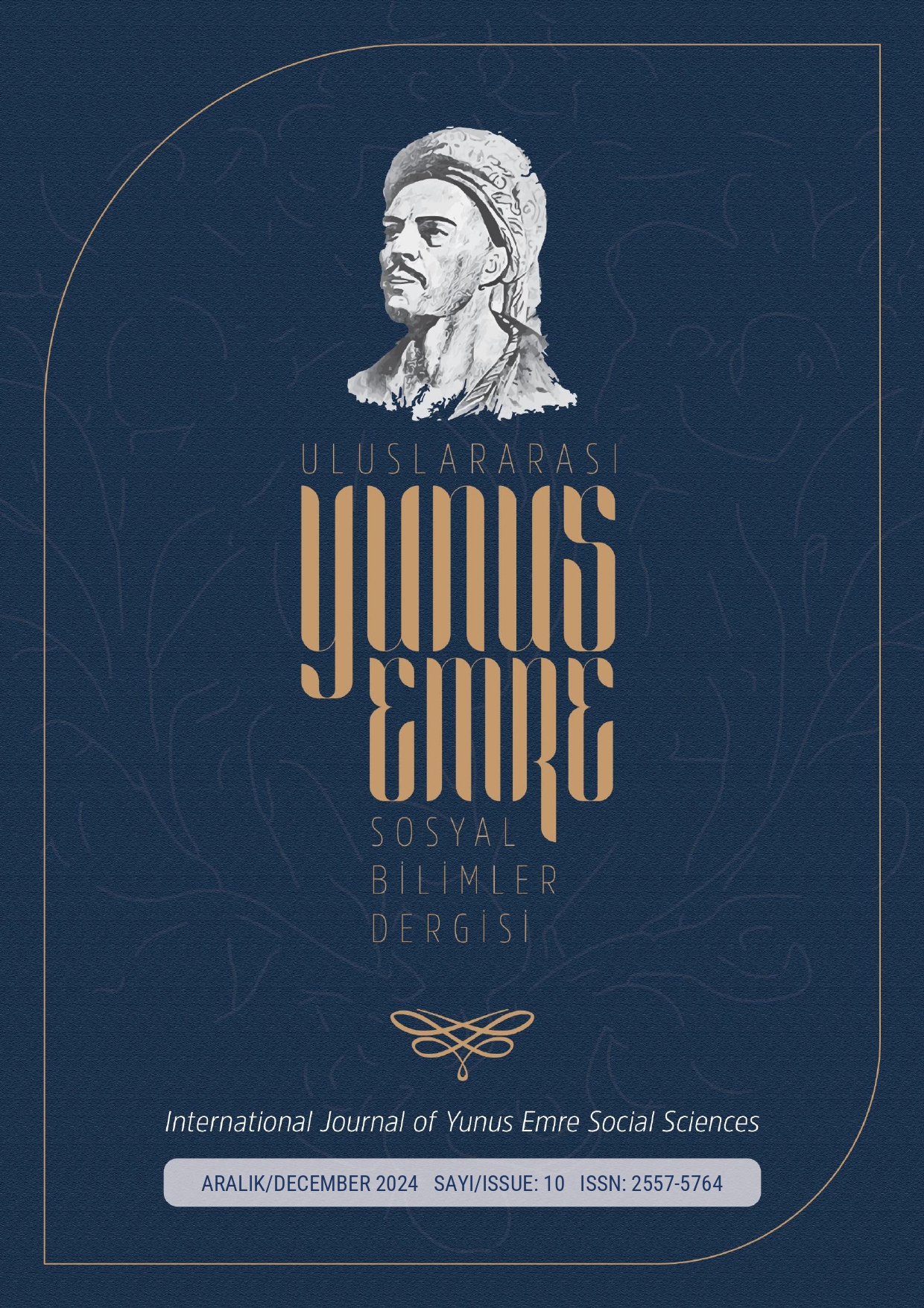Author :
Abstract
Altın Palmiyeli Kış Uykusu, Nuri Bilge Ceylan’ın Türk sinemasına kazandırdığı filmlerdendir. Bu başarının arkasında, estetik kaygıyı gözeten bir yönetmenin olması kadar gerçekliğe uygun tasarlanan karakterler ve onların duyumsadığı içsel sorunların tümeli kapsayacak biçimde işlenmesi de etkili olur. Ceylan’ın ilk filmlerinde (Koza, Kasaba, Mayıs Sıkıntısı) sinematografik kozanın insanı çevreleyen dış dünya üzerine örüldüğü söylenebilir. Ancak Uzak daha ziyade İklimler’le beraber objektifin insanın ruhuna bir yöneliş içerisinde olduğu fark edilir. Ceylan’ın sinema estetiğinde insan gerçeğini anlama arzusu değişmeyen olgulardandır. O, ilk filmlerinde fotoğrafçı kimliğinin de etkisiyle bu arzusunu doğanın dilinden faydalanarak gerçekleştirir. Sonrasındaysa bireyin iç dünyası, diyaloglara dayanan anlatım biçimiyle açığa çıkarılır. Başkarakter Aydın’ın karmaşık iç dünyasıyla ve diğer oyuncularla olan hesaplaşmasını ve birbirleriyle mekanikleşen ilişkilerini konu edinen Kış Uykusu, insan gerçekliğini yansıtma noktasında dikkat çeker. Yaşamlarındaki anlamın kaybolmasıyla kendilik bilincine ve topluma yabancılaşan karakterlerin yer edinme sancısı çektiği de görülmektedir. Bu bağlamda karakterlerin ruh dünyaları ve birbirleriyle olan münasebetleri; yalnızlık, anlamsızlık, yabancılaşma, yersiz yurtsuzluk vb. kavramlar eşliğinde yorumlanmaya kapı aralamaktadır. Hazırlanan bu çalışmada, yönetmenin genel olarak insana bakışı göz önüne alınarak filmdeki insani ilişkiler, psikolojik ve felsefi kavramlar eşliğinde değerlendirilmeye çalışılır. Yöntem olarak sinematografik bir perspektiften ziyade, anlatı çözümleme metodundan yararlanılarak tematik bir inceleme merkeze alınır.
Keywords
Abstract
The Palme d'Or winner Winter Sleep is one of Nuri Bilge Ceylan's contributions to Turkish cinema. Behind this success is not only a director with an eye for aesthetic concerns, but also the characters designed in accordance with reality and the inner problems they feel, and the processing of their inner problems in a way that encompasses the whole. In Ceylan's early films (Cocoon, The Small Town, Clouds of May), it can be said that the cinematographic cocoon is woven around the external world surrounding the human being. However, with Distant, rather with Climates, it is noticed that the lens is directed towards the human soul. The desire to understand human reality is one of the unchanging facts in Ceylan's cinema aesthetics. In his first films, with the influence of his identity as a photographer, he realises this desire by making use of the language of nature. Later on, the inner world of the individual is revealed through a narrative style based on dialogues. Winter Sleep, which deals with the complex inner world of the protagonist Aydın and his reckoning with the other actors and their mechanised relations with each other, draws attention in terms of reflecting human reality. It is also seen that the characters, who are alienated from their self-consciousness and society with the loss of meaning in their lives, suffer from the pain of gaining a place. In this context, the mental worlds of the characters and their relations with each other open the door to interpretation with the concepts of loneliness, meaninglessness, alienation, homelessness, etc. In this study, considering the director's view of human beings in general, human relations in the film are tried to be evaluated with psychological and philosophical concepts. As a method, rather than a cinematographic perspective, a thematic analysis is centred on a narrative analysis method.





